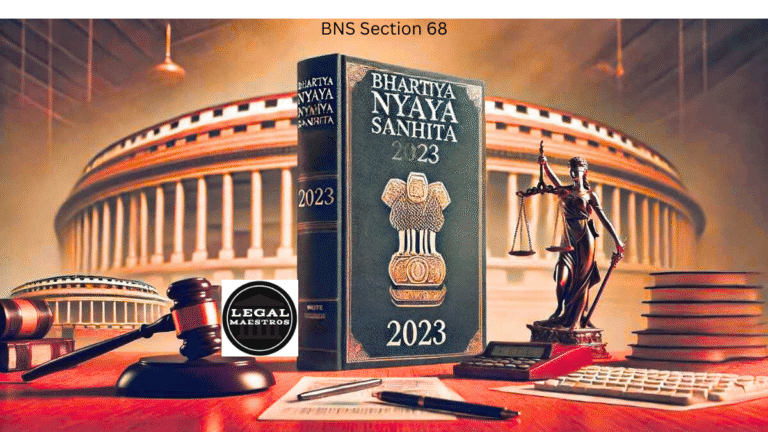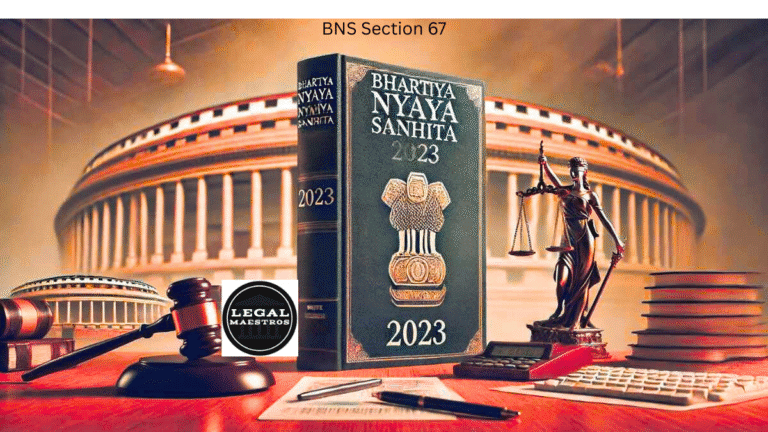
Understanding Section 31 of the Bharatiya Nyaya Sanhita, 2023: Communication Made in Good Faith
The Bharatiya Nyaya Sanhita (BNS) of 2023, which took the place of the Indian Penal Code, includes a number of provisions that are intended to bring India’s criminal legislation into relevance with modern standards. One of these is Section 31, which discusses the legal repercussions that can result from communications that are offered in good faith. In this section, clarity is provided regarding the circumstances under which such communications, even if they result in injury, are not regarded to be violations of the law.
In what way does Section 31 express itself?
In accordance with Section 31
“No communication made in good faith is an offence by reason of any harm to the person to whom it is made, if it is made for the benefit of that person.” *
The clause provides that those who communicate information with the intention of benefiting the receiver and who do so with sincere intentions are not held criminally accountable in the event that the communication mistakenly causes harm to the recipient.
For any queries or to publish an article or post or advertisement on our platform, do call at +91 6377460764 or email us at contact@legalmaestros.com.
Example 1: Disclosure of Medical Information
Dr. A, a surgeon, breaks the news to his patient that he is suffering from a life-threatening condition and may not pass away. This causes the patient to get a deadly shock as soon as they hear it. In spite of the fact that he was aware of the potential consequences of the news, Dr. A acted in good faith with the intention of informing and preparing the patient. According to Section 31, the communication that Dr. A made is not regarded to be a crime. The number 20
Example 2: Feedback on Academic Performance
After noticing that a student’s performance has been deteriorating, a teacher cautions the student that he may not pass the school year if he does not make any improvements. The student suffers from a severe case of stress and eventually becomes unwell. It was the intention of the instructor to inspire the pupil to improve their performance. In light of the fact that the communication was made in good faith, it does not constitute an offense in accordance with Section 31.
For More Updates & Regular Notes Join Our Whats App Group (https://chat.whatsapp.com/DkucckgAEJbCtXwXr2yIt0) and Telegram Group ( https://t.me/legalmaestroeducators )
For any queries or to publish an article or post or advertisement on our platform, do call at +91 6377460764 or email us at contact@legalmaestros.com.
Example 3: Disclosure of Whistleblower Information
Internal auditors are responsible for uncovering fraudulent actions within a corporation that could potentially cause harm to shareholders. The management of the company suffers damage to their reputation as a result of her actions, which she reports to the media. This revelation was provided in good faith for the benefit of the general public, despite the fact that it caused harm. In accordance with Section 31, such communications are shielded from being considered illegal. The number 20
A Definition of ‘Good Faith’ in the Context of the Law
When it comes to understanding Section 31, the term “good faith” is fundamental. An act is considered to have been carried out in good faith if it is carried out with the appropriate amount of care and attention, as stated in Section 2(11) of the BNS. This indicates that the communicator must have a true belief in the accuracy or necessity of the information and have no malicious intentions or dishonest reasons in order to act in this manner. The number 20
The Reasons Behind it and the Importance of Section 31
The purpose of Section 31 is to promote openness and honesty in communication, particularly in professional and public interest settings. By affording legal protection to persons who are acting in good faith, the law creates an atmosphere in which essential information can be disseminated without the fear of facing legal ramifications, even in the event that unintended harm is caused. By maintaining this equilibrium, it is ensured that although utterances that are harmful or irresponsible are punished, disclosures that are honest and beneficial are protected. The number 20
For any queries or to publish an article or post or advertisement on our platform, do call at +91 6377460764 or email us at contact@legalmaestros.com.





![Research Assistantship @ Sahibnoor Singh Sindhu, [Remote; Stipend of Rs. 7.5k; Dec 2025 & Jan 2026]: Apply by Nov 14, 2025!](https://legalmaestros.com/wp-content/uploads/2025/11/Gemini_Generated_Image_s0k4u6s0k4u6s0k4-768x707.png)
![Karanjawala & Co Hiring Freshers for Legal Counsel [Immediate Joining; Full Time Position in Delhi]: Apply Now!](https://legalmaestros.com/wp-content/uploads/2025/11/Gemini_Generated_Image_52f8mg52f8mg52f8-768x711.png)
![Part-Time Legal Associate / Legal Intern @ Juris at Work [Remote]: Apply Now!](https://legalmaestros.com/wp-content/uploads/2025/11/ChatGPT-Image-Nov-12-2025-08_08_41-PM-768x768.png)
![JOB POST: Legal Content Manager at Lawctopus [3-7 Years PQE; Salary Upto Rs. 70k; Remote]: Rolling Applications!](https://legalmaestros.com/wp-content/uploads/2025/11/ChatGPT-Image-Nov-12-2025-08_01_56-PM-768x768.png)